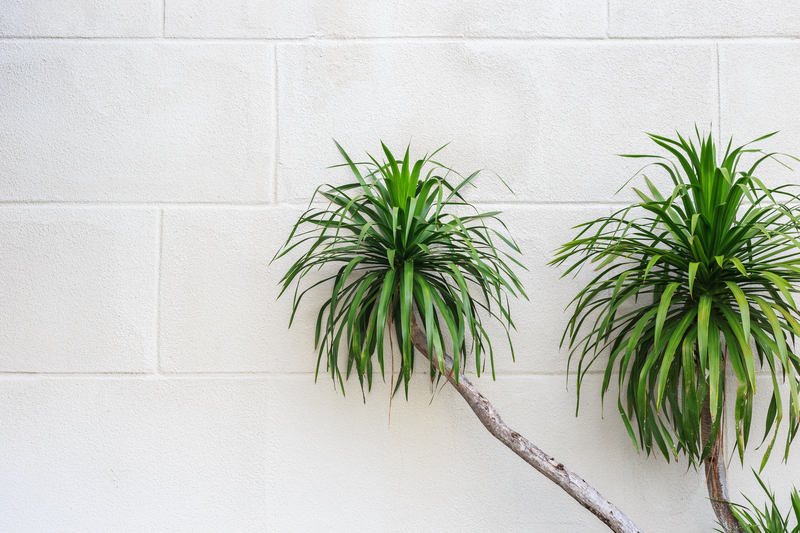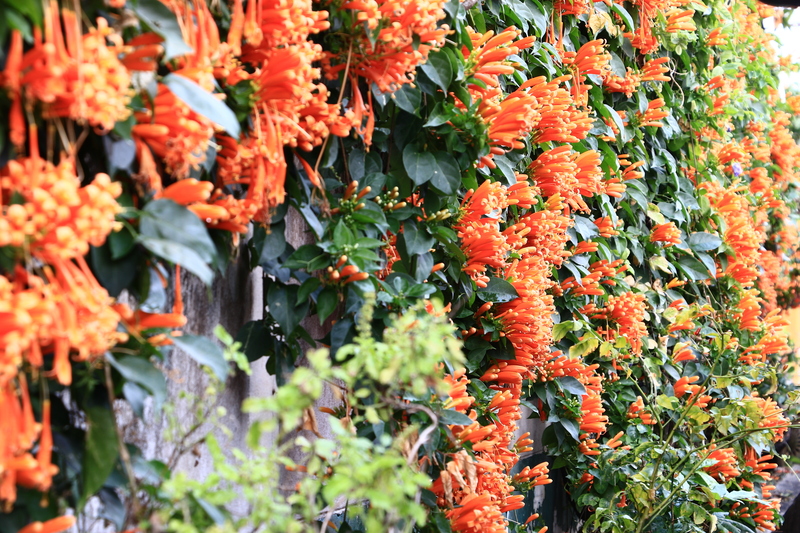Eco-Friendly Gardening: 3 Tips to Curb Weeds Without Chemicals
Posted on 27/08/2025
Eco-Friendly Gardening: 3 Tips to Curb Weeds Without Chemicals
Gardening enthusiasts are increasingly looking for natural ways to control weeds that don't harm the environment. Eco-friendly gardening not only supports biodiversity but also ensures your garden thrives without the use of hazardous herbicides. If you're wondering how to eliminate unwanted plants sustainably, here are three powerful tips to maintain a lush, healthy garden--without resorting to chemicals.
Why Choose Eco-Friendly Weed Management?
Conventional weed killers often contain chemicals that can leach into the soil and waterways, posing risks to beneficial insects, pets, and even your own health. By adopting chemical-free weed control methods, you:
- Protect pollinators like bees and butterflies
- Preserve beneficial soil organisms such as earthworms and microbes
- Reduce your exposure to toxic substances
- Create a garden that's safer for children and pets
- Support a more balanced and sustainable ecosystem
Let's explore the best natural techniques for weed suppression that are effective, easy, and environmentally responsible.

1. Mulching: Nature's Blanket for Weed Control
One of the most time-tested organic methods to suppress weeds is mulching. By covering the soil with a layer of organic or inorganic material, you block sunlight from reaching weed seeds--which inhibits their germination and growth.
What Is Mulch and How Does It Work?
Mulch can be made of various materials, including shredded leaves, wood chips, straw, grass clippings, or even newspaper. Inorganic mulches such as landscape fabric or gravel can also help, but organic mulches offer additional soil health benefits as they decompose.
- Suppresses Weeds: Blocks light, starving weeds and preventing new growth.
- Retains Moisture: Reduces evaporation, helping your garden stay hydrated.
- Improves Soil Quality: Organic mulches break down over time, adding nutrients and improving soil structure.
- Regulates Temperature: Keeps soil cooler in summer and warmer in winter.
Best Practices for Mulching to Prevent Weeds
- Apply mulch 2-4 inches thick to effectively block sunlight.
- Leave space around plant stems to prevent rot and fungal diseases.
- Replenish mulch as it decomposes, typically once a year, to maintain coverage.
- Use cardboard or newspaper layers underneath mulch for extra weed-stopping power. Wet the layers so they conform to the soil, then cover with mulch.
For pathways and areas without plantings, consider landscape fabric topped with bark or gravel for long-lasting weed control that's friendly to the environment.
2. Hand Weeding and Hoeing: Old-Fashioned but Powerful
Simple, manual weed removal may seem labor-intensive, but it remains one of the most effective eco-gardening approaches for weed management. Removing weeds by hand or with tools has several notable advantages:
- No toxic residues left in your soil or near edibles
- Selective weed removal, ensuring beneficial or decorative plants stay untouched
- Immediate eradication of weeds before they can set seed
- Physical disturbance of the weed's roots, limiting regrowth
Tips for Effective Hand Weeding in Your Eco-Friendly Garden
- Weed after rain or watering: Moist soil makes it easier to pull roots intact.
- Weed early and often: Young weeds are less established and easier to remove. Establish a routine--weekly 10-minute sessions can make a big difference.
- Use the right tools: Hand forks, hoes, or specialized weeders can help remove deeper-rooted invaders.
- Remove the entire root: Especially for perennial weeds, leaving bits of root can result in regrowth.
- Dispose of weeds properly: Especially those with seeds or runners. Compost only seed-free weeds, or use hot composting methods to kill seeds.
*For larger areas or between rows, a hoe is highly effective.
Tip: Use a sharp hoe just below the soil surface to cut weeds before they mature.
3. Encouraging Dense Planting & Ground Covers
Nature abhors a vacuum--and so do weeds.
Maximizing your garden's plant density is a powerful, organic way to outcompete invasive plants for sunlight, water, and soil nutrients. The closer your desired plants grow together, the less room weeds have to take hold.
How Dense Planting Prevents Weeds Organically
- Shading the soil: Thick foliage casts shade, lowering the soil temperature and making weed germination difficult.
- Root competition: Established plant roots use up water and nutrients, making it harder for new weed seeds to survive.
- Natural ground covers: Plants like creeping thyme or clover form living carpets, protecting the soil from weed intrusion year-round.
- Continuous harvest cycles: Filling gaps quickly after harvesting vegetables denies weeds valuable real estate.
The Best Ground Covers for Organic Weed Suppression
- Creeping Thyme: Attractive, fragrant, and tough against foot traffic.
- Clover: Fixes nitrogen in the soil and forms a lush mat to crowd out weeds.
- Sedum and Stonecrop: Great for dry spots or rocky ground.
- Sweet Woodruff: Excellent for shaded areas beneath trees and shrubs.
- Ajuga (Bugleweed): Spreads quickly, ideal for troublesome spots.
- Vinca Minor (Periwinkle): Evergreen with blue flowers and robust growth.
Vegetable gardeners can use row covers, intercropping, and close plant spacing to suppress weeds while maximizing harvests. Cover crops, such as buckwheat or rye, can be sown in bare beds to outcompete weeds between seasons--then turned under to enrich the soil.
Additional Organic Weed Control Methods
While mulching, hand weeding, and dense planting form the backbone of eco-friendly weed management, here are a few extra techniques for challenging situations:
- Solarization: Cover soil with clear plastic in hot weather to "cook" weed seeds and pathogens.
- Boiling water: For driveway cracks or paving stones, pour boiling water carefully to kill weeds instantly--no residue left behind.
- Homemade vinegar sprays: Use strong (20%) acetic acid-based vinegar as a targeted spray to desiccate young annual weeds. Avoid spraying near desired plants, as vinegar is non-selective.
- Flame weeding: Special torches can be used in large veggie beds to scorch weeds quickly (best for non-flammable areas).
Preventing Weeds: Smart Garden Design
An ounce of prevention is truly worth a pound of cure in sustainable gardening.
- Landscape borders: Regularly edge flower beds and paths to prevent lawn grasses and weeds from creeping in.
- Remove weed seed sources: Keep compost piles and garden edges free of neglected weeds that can go to seed.
- Monitor new plants: Check nursery-bought pots for hitchhiking weeds before adding to your garden.
- Water only where needed: Use soaker hoses or drip irrigation to deliver water directly to plants--depriving weeds of moisture.
Benefits of Chemical-Free Weed Control
- Healthier soils: No toxic buildup means richer, more balanced earth for your plants.
- Wildlife preservation: Birds, bees, and helpful insects thrive in safe, pesticide-free environments.
- Sustainable garden legacy: By embracing eco-friendly weed management, you help preserve the landscape for future generations.
- Cost savings: Most organic weed suppression methods rely on natural, often free materials and simple labor.
By committing to green gardening practices, you create a beautiful and productive outdoor space--one that's in harmony with nature, resilient to pests, and inviting to wildlife.

FAQs About Eco-Friendly Weed Control
Can I use household vinegar to kill weeds?
Household vinegar (5% acetic acid) can help with small, young weeds in cracks or between pavers, but stronger horticultural vinegar (20% acetic acid) is more effective. Always apply with care and only to weeds--not near vegetables or ornamentals, as it is non-selective.
How often should I mulch my garden beds?
Replenish mulch once or twice per year, as it decomposes and becomes less effective. Check for exposed soil and add a fresh layer as needed, maintaining a depth of 2-4 inches.
Are ground covers always better than bare soil?
Yes--covering exposed ground is key to organic weed prevention. Even a thin layer of fast-growing ground cover can dramatically reduce weed problems while enriching your garden's soil.
Conclusion: Growing a Green, Weed-Free Garden
Eco-friendly gardening is about more than just avoiding chemicals; it's about working hand-in-hand with nature. By practicing mulching, consistent hand weeding, and encouraging dense, ground-hugging plants, you can enjoy a lush, thriving, and chemical-free garden.
Choose the eco-conscious path and discover the rewards of a garden that's both beautiful and environmentally responsible--where weeds are managed naturally and every living thing, from earthworms to butterflies, flourishes right beside you.
For more tips on building your perfect eco-garden, explore our other guides on organic composting, native plants, and sustainable landscaping!
Latest Posts
Craft a Beautiful Garden with 5 Budget-Friendly Low Maintenance Strategies
Equip Your Garden Shed with These Crucial Tools
Transforming Yards into Canine-Friendly Gardens

